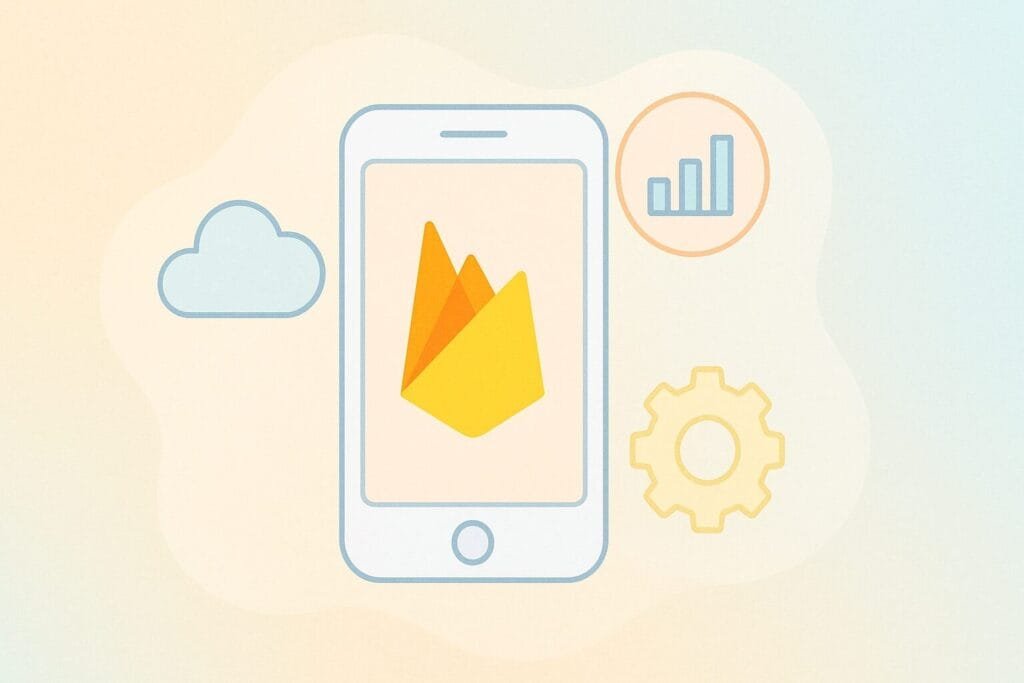Mobile development has rapidly evolved, and developers are always in search of tools that speed up development, improve scalability, and simplify backend management. Firebase, a mobile and web application development platform by Google, offers a suite of tools that streamline mobile development. However, it is not a one-size-fits-all solution. So, when is the best time to use Firebase in mobile development?

What Is Firebase?
Firebase is a Backend-as-a-Service (BaaS) platform that provides a comprehensive set of features like real-time databases, cloud storage, analytics, crash reporting, and user authentication. It is widely used for Android and iOS development due to its easy integration and scalability.
Key Features of Firebase
| Feature | Description |
|---|---|
| Firebase Realtime Database | Store and sync data in real-time |
| Firestore | Scalable, flexible NoSQL cloud database |
| Firebase Authentication | Manage users with email, social, or anonymous sign-ins |
| Firebase Cloud Messaging (FCM) | Send push notifications to users |
| Firebase Hosting | Deploy web apps with a fast CDN |
| Crashlytics | Monitor app stability in real-time |
| Firebase Analytics | Understand user behavior through in-app analytics |
When to Use Firebase
Here are scenarios when Firebase is the ideal choice for mobile development:
1. Rapid Prototyping
If you’re building an MVP (Minimum Viable Product), Firebase helps you move fast without setting up servers. Features like Firestore and Authentication let you focus more on UI/UX instead of backend infrastructure.
Use Case: Startup founders or indie developers creating a prototype for investors.
2. Real-Time Applications
Firebase excels at handling real-time data, making it a great choice for chat applications, collaboration tools, and multiplayer games.
Use Case: Messaging apps, online whiteboards, or collaborative note apps.
3. Serverless Architecture
Firebase lets you go serverless with Cloud Functions, reducing backend management.
Use Case: Apps that require lightweight server-side logic like sending emails, data validation, or image processing.
4. Small to Medium Projects
For personal projects, academic apps, or business tools with a moderate number of users, Firebase provides a free tier and flexible pricing.
Use Case: A university attendance app or a company internal dashboard.
5. Cross-Platform Synchronization
Firebase works seamlessly across Android, iOS, and Web, making it easier to synchronize user data across multiple devices.
Use Case: Cloud note-taking apps or document management systems.
6. Push Notifications
With Firebase Cloud Messaging (FCM), sending notifications is straightforward, without the need for third-party services.
Use Case: E-commerce apps notifying users of flash sales.
When NOT to Use Firebase
While Firebase is powerful, there are situations where it might not be the right fit.
| Scenario | Why Firebase May Not Be Ideal |
|---|---|
| Complex SQL Queries | Firebase uses NoSQL, making complex joins or transactions difficult |
| Vendor Lock-In Concerns | Migrating away from Firebase can be complex and costly |
| Large Enterprise Systems | For apps with large-scale, custom backend needs, traditional solutions might be more flexible |
| Compliance-Heavy Apps | Apps requiring strict GDPR or HIPAA compliance may require additional controls |
Firebase vs Traditional Backend (Comparison Table)
| Criteria | Firebase | Traditional Backend (Node.js, Django, etc.) |
|---|---|---|
| Setup Time | Very quick | Moderate to high |
| Real-time Capability | Built-in | Requires third-party libs like Socket.io |
| Learning Curve | Beginner-friendly | Requires backend expertise |
| Custom Logic | Limited with Cloud Functions | Full control |
| Scalability | High (with Google Cloud) | Depends on implementation |
| Cost | Free tier available, pay as you go | Depends on server & DB usage |
Firebase Pricing Considerations
Firebase offers a free tier with generous limits:
- 50K reads/day in Firestore
- 1GB storage
- 10K verifications/month for Auth
For production apps, the Blaze Plan is pay-as-you-go. Check current pricing on the official Firebase site.
Popular Apps Built with Firebase
Several successful apps have used Firebase, including:
- Shazam – for real-time music recognition
- Duolingo – for real-time user data sync
- Alibaba – for real-time messaging infrastructure
External Resource
To learn more about Firebase best practices, visit this Firebase Documentation Page.
Conclusion
Firebase is a robust and versatile platform perfect for rapid development, real-time features, and serverless infrastructure. It’s best suited for small to mid-scale apps, MVPs, or apps that need cross-platform support without managing complex backend systems. However, for large enterprise apps with complex data requirements, traditional backend solutions may be more suitable.
Choosing Firebase depends on your project’s size, timeline, technical resources, and long-term scalability goals.

